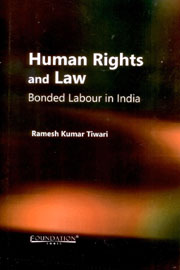Book contents
- Frontmatter
- Contents
- List of Tables
- Foreword
- Preface
- 1 Introduction
- 2 Slavery and Debt Bondage in British India: Policy and Implementation
- 3 Debt Bondage during the Post-Independence Period: Policy Developments
- 4 Problems in the Implementation of Bonded Labour System (Abolition) Act, 1976
- 5 Rehabilitation of Released Bonded Labourers
- 6 Judicial Intervention
- Conclusion
- Appendices
- Glossary
- Biographical Notes
- Bibliographical Essay
- Index
Conclusion
Published online by Cambridge University Press: 26 October 2011
- Frontmatter
- Contents
- List of Tables
- Foreword
- Preface
- 1 Introduction
- 2 Slavery and Debt Bondage in British India: Policy and Implementation
- 3 Debt Bondage during the Post-Independence Period: Policy Developments
- 4 Problems in the Implementation of Bonded Labour System (Abolition) Act, 1976
- 5 Rehabilitation of Released Bonded Labourers
- 6 Judicial Intervention
- Conclusion
- Appendices
- Glossary
- Biographical Notes
- Bibliographical Essay
- Index
Summary
Historically speaking, Indian society has been a society with a high degree of inequality. This gave rise to the exploitation of the rural labour in various ways. Besides being a caste-ridden society, the lower castes also faced multiple complexities in the social sphere. The British began prohibiting these practice through legislation. In due course of time, a large number of laws were enacted to contain these problems. After independence and with the laying down of the Constitution, the provisions of the Directive Principles of State Policy and Fundamental Rights carried forward the momentum to bring about a social change so as to mitigate these inequalities. However, it is becoming increasingly clear that the drawing up of legislation is totally different from its enforcement. Partial enforcement of these legislations over a period of time has belied the hope of bringing about social change through laws.
The statutes of 1843 and 1976 on slavery and bonded labour respectively provide a comparative perspective in the making of social legislation in two different historical settings and political systems. Besides, they also provide the beginning of the social legislation in India with particular reference to finer points as well as criticism of the statutes, keeping in view the objectives of the legislation. In this context, the statute of 1843 did not reveal much understanding of the nature and extent of slavery, and it addressed the legal status of slavery without specifying who might be regarded as a slave.
- Type
- Chapter
- Information
- Human Rights and LawBonded Labour in India, pp. 123 - 127Publisher: Foundation BooksPrint publication year: 2011



